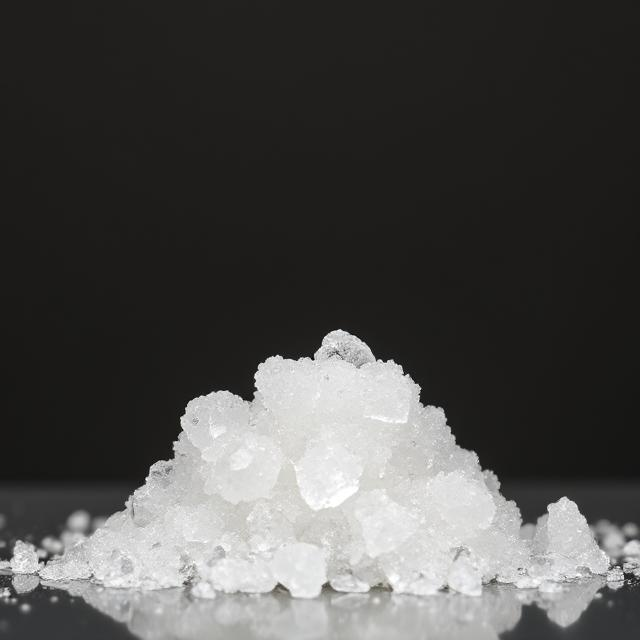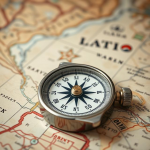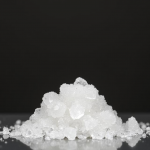Noshadar, also known as Naushadar, is a versatile chemical compound with a wide array of applications in industries, households, and even traditional medicine. Scientifically known as ammonium chloride, Noshadar plays a role in everything from food preservation and flavoring to cleaning and medicinal uses. But what exactly is Noshadar, and how can it be used safely and effectively? Let’s explore!
What is Noshadar?
Noshadar, or Naushadar, is an inorganic compound that appears as a white, crystalline powder. In Urdu, it’s referred to as نوشادر, and in English, it is called ammonium chloride. This compound is characterized by its sharp, salty taste and is highly soluble in water, making it easy to mix into various solutions. It has been used for centuries in both industrial and household settings due to its diverse properties.
While its appearance might seem simple, the applications of Noshadar range from being a flavor enhancer in food to a cleaning agent in households. But it’s essential to understand its chemical nature to grasp why it’s so useful.
Chemical Composition of Noshadar
You might wonder, what is the chemical name of Noshadar? The answer is ammonium chloride (NH4Cl). This compound is formed through the chemical reaction between ammonia (NH3) and hydrochloric acid (HCl). The result is a crystalline substance that has a variety of uses, depending on how it is processed and applied.
In some regions, particularly in traditional uses, it’s also known as sal ammoniac. But is there a difference between Noshadar and ammonium chloride? No—these are simply different names for the same chemical substance. Understanding this helps clarify how Noshadar fits into both traditional remedies and modern industry.
Uses of Noshadar
Now, what is Noshadar used for? The applications of Noshadar are as diverse as its history:
- Food Industry: Noshadar is often used in small quantities to add a distinct salty flavor to foods, particularly in licorice. This may raise questions like, is ammonium chloride safe in food? The answer is yes—but only in controlled, minimal amounts. Overconsumption can pose health risks, so regulations typically govern its use in food.
- Medicinal Uses: Traditionally, Noshadar has been used to help treat coughs, constipation, bloating, and clear mucus from the respiratory system. Is ammonium chloride good for cough? Yes, it acts as an expectorant, helping to break down and expel mucus, making it easier to breathe.
- Household and Industrial Uses: In the home, Noshadar is popular as a cleaning agent, particularly for metals. It’s also used in wood burning to create unique artistic effects and is an important component in fertilizers due to its nitrogen content.
Benefits of Noshadar
The benefits of Noshadar extend beyond just its practical uses. Here are some notable advantages:
- Respiratory Health: As an expectorant, Noshadar is effective in helping to relieve respiratory congestion. It loosens mucus, aiding in the treatment of bronchitis and coughs.
- Agriculture and Metalwork: Noshadar is used in the production of fertilizers, providing essential nitrogen for plant growth. It’s also valuable in metalworking for cleaning metal surfaces and preventing rust.
- Potential Skin Benefits: Some traditional remedies suggest using Noshadar for skin health due to its antiseptic properties. However, caution is advised, as improper use may lead to irritation.
Side Effects and Safety Concerns
While Noshadar offers many benefits, it’s crucial to understand the potential risks associated with its use:
- Is ammonium chloride harmful to humans? When used in appropriate amounts, it’s generally safe. However, excessive exposure can lead to adverse effects.
- Side Effects on Skin: Prolonged contact with ammonium chloride can cause skin irritation, dryness, and even burns in high concentrations.
- Internal Effects: Ingesting large amounts of Noshadar can lead to nausea, vomiting, and even high blood pressure.
- Is ammonium chloride safe for kids? It’s only safe under medical supervision and in controlled doses. Self-medication is strongly discouraged.
Frequently Asked Questions (FAQs) About Noshadar
Is ammonium chloride harmful to humans?
In small, controlled amounts, ammonium chloride is generally safe. However, overexposure or ingestion in large quantities can lead to side effects like nausea, vomiting, skin irritation, and increased blood pressure.
Can ammonium chloride be used for cough treatment?
Yes, ammonium chloride acts as an expectorant, helping to loosen mucus and relieve respiratory congestion. However, it should be used under medical supervision, especially in children.
What are the side effects of ammonium chloride on the skin?
Prolonged exposure can cause irritation, dryness, or even burns. If it comes into contact with the skin, it’s best to rinse immediately with water.
Does ammonium chloride raise blood pressure?
Yes, excessive consumption of ammonium chloride may lead to increased blood pressure, so it should be used cautiously, especially by individuals with pre-existing conditions.
Is ammonium chloride safe to eat in licorice?
Ammonium chloride is safe to consume in small amounts as a flavoring agent in salty licorice. However, consuming it in large quantities can pose health risks.
Is ammonium chloride safe for kids?
Ammonium chloride should only be given to children under medical supervision. Misuse can lead to adverse effects like nausea and vomiting.
What is the price and availability of Noshadar?
The price of Noshadar varies depending on purity and quantity, but it generally costs a few dollars per kilogram. Prices may differ based on whether it’s food-grade or industrial-grade.
It’s widely available in chemical supply stores, pharmacies, and even online marketplaces, but always ensure you’re purchasing from reputable sources to guarantee safety and quality.
What happens if you get ammonium chloride on your skin?
If ammonium chloride comes into contact with your skin, wash the area immediately with water to prevent irritation. Seek medical attention if irritation persists.
Conclusion
In conclusion, Noshadar (ammonium chloride) is a multifunctional compound with a rich history and a wide range of modern applications. Whether you’re using it to treat a persistent cough, add flavor to licorice, or clean metal surfaces, Noshadar proves to be incredibly useful. However, like any chemical, it should be handled with care, respecting its potential side effects and adhering to recommended usage guidelines.
By understanding what Noshadar is and how to use it responsibly, you can fully appreciate its benefits while minimizing risks. Always consult a professional when in doubt, especially when using it for medicinal purposes.



.jpg)
.jpg)

